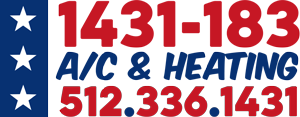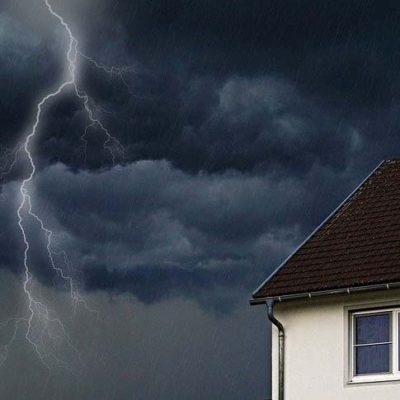Hurricanes are one of Mother Nature’s most destructive forces. Since 1980, they’ve caused over $860 billion worth of property damage in the United States.
While you may have homeowner’s insurance, it’s always a good idea to protect your heating, ventilation and cooling (HVAC) system from hurricanes and other severe storms.
By taking a few precautionary measures, you can keep your HVAC system safe.
Use Tie-Down Anchors
Tie-down anchors are useful for protecting HVAC systems from hurricane damage.
Consisting of L-shaped metal brackets, you can use them to secure your condenser coil to an underlying concrete pad. Tie-down anchors are screwed into both the concrete pad and the bottom of your condenser coil.
Once installed, they’ll keep your condenser coil in place – even under the battering of strong winds.
Trim Branches
You should trim any large branches that hang over your condenser coil.
Hurricanes and other severe storms can easily knock down branches. If a branch is directly over your condenser coil, it may damage the unit during a hurricane.
Although you can’t control the weather, you can prevent overhanging branches from damaging your condenser coil by trimming them.
Remove Outdoor Furniture
Another tip to protect your condenser coil from damage is to remove outdoor furniture.
Chairs, lounges, stools, tablets and other furniture pieces are often a source of damage. When the wind picks up, they may fly into your condenser coil.
You can still use outdoor furniture; just bring it indoors until the bad weather has passed.
Turn Off Power at the Breaker Box
When a hurricane or severe storm is approaching, you should consider turning off the power to your HVAC system at the breaker box.
Doing so is important for two primary reasons: First, turning off the power will protect the condenser coil from electrical flood damage. If the water rises high enough, it may damage your condenser coil’s electrical system unless the power is turned off.
Second, turning off the power will protect your entire HVAC system from power surges. A power surge from a nearby lightning strike can damage or destroy all electrically connected appliances and devices.
By turning off the power at the breaker box, though, this won’t be a concern.
Contact an HVAC Professional If Damage Occurs
While following these tips can lower the risk of damage to your HVAC system, it’s not always enough.
If you notice that your HVAC system isn’t working right after a severe storm, you should contact an HVAC professional for assistance.
Regardless of what’s wrong with it, an HVAC professional can diagnose and fix it so that your HVAC system is back in working order.
If you are experiencing a problem with your air conditioning or heating call us at 512-336-1431 to schedule an appointment. We’ll be glad to come out and take a look at the issue.
1431-183 A/C & Heating proudly serves Round Rock, Georgetown, Cedar Park, Pflugerville, Leander, Liberty Hill, and North Austin.

